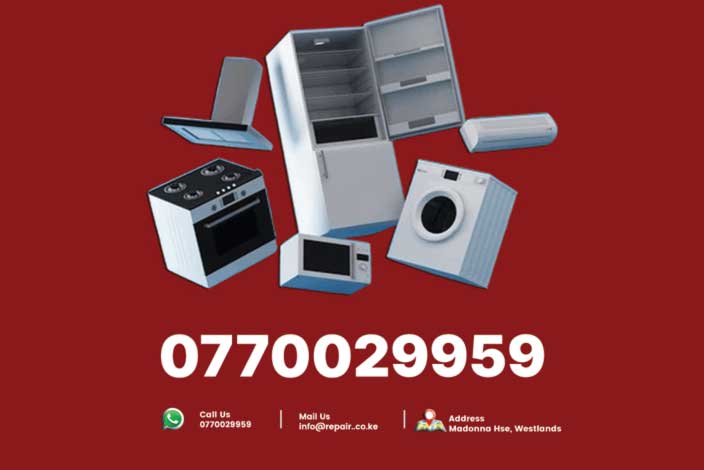Here are the top 5 Reasons Why a Washing Machine Makes Loud Noise
1. Unbalanced Load
An unbalanced load is a common cause of loud noises in washing machines. When clothes are unevenly distributed in the drum, the machine can vibrate excessively during the spin cycle, leading to banging or thumping sounds. Heavy items like towels, blankets, or jeans can clump together, throwing the drum off balance. This not only creates noise but can also strain the machine’s components. To address this, pause the cycle and redistribute the load evenly. Avoid overloading the machine, and ensure mixed loads contain items of similar weight. Regular maintenance, such as checking for loose drum components, can prevent this issue from worsening.
"Washing machines are designed to handle balanced loads; uneven weight distribution can reduce their lifespan."
— Appliance Repair Specialist, RepairKE
2. Worn-Out Bearings
Worn bearings are a frequent culprit behind loud grinding or rumbling noises, especially during the spin cycle. Bearings support the drum’s rotation, and over time, they can wear out due to constant use or water damage from leaking seals. A telltale sign is a persistent grinding sound that worsens with each cycle. To diagnose, manually spin the drum when the machine is off; if it feels rough or noisy, the bearings may need replacement. This repair requires professional expertise, as it involves disassembling the machine. Regular servicing by RepairKE can help detect early bearing wear and prevent costly damage.
"Faulty bearings, if ignored, can lead to drum misalignment and more extensive repairs."
— RepairKE Technician
3. Loose or Damaged Drum Components
Loose or damaged drum components, such as bolts, shock absorbers, or suspension springs, can cause loud banging or rattling noises. These parts stabilize the drum during operation, and wear or loosening over time can lead to excessive movement. Inspecting the machine for loose screws or damaged parts is essential. For top-loaders, check the agitator for looseness, while front-loaders may have worn-out shock absorbers. RepairKE recommends tightening loose components or replacing damaged ones promptly to avoid further internal damage and ensure quiet operation.
"Regular inspection of drum components can catch issues before they escalate into major repairs."
— Home Appliance Expert
4. Foreign Objects in the Drum or Pump
Foreign objects like coins, buttons, or small items left in pockets can get trapped in the drum or pump, causing clanking or rattling noises. These objects may lodge in the drum’s perforations or block the pump, leading to loud vibrations or grinding sounds. To fix this, check the drum for loose items and inspect the pump filter, typically located at the bottom of the machine. Remove any debris carefully to prevent damage. RepairKE advises emptying pockets before washing and using a laundry bag for small items to minimize this issue.
"A single coin in the drum can cause significant noise and even damage the pump if not removed."
— RepairKE Service Manager
5. Faulty Drive Belt or Motor
A worn or loose drive belt can produce squealing, screeching, or thumping noises, especially during the spin or agitation cycles. The drive belt connects the motor to the drum, and over time, it may fray or slip. Similarly, a malfunctioning motor can create humming or buzzing sounds. Diagnosing this requires checking the belt for wear or misalignment and inspecting the motor for signs of failure. Professional repair is often necessary, as replacing a drive belt or motor involves technical expertise. RepairKE’s technicians can quickly identify and resolve these issues to restore quiet operation.
"A squealing belt is often a sign it’s time for a replacement to avoid complete machine failure."
— Appliance Maintenance Professional






